Hydration and Electrolytes: Balancing Act
In the pursuit of performance and overall well-being, hydration and electrolyte balance should be top of mind. For busy working adults who are integrating fitness into their hectic schedules, understanding the roles of water and key electrolytes—potassium, sodium, and magnesium—is crucial for achieving fitness goals and more importantly maintaining health.
Hydration – We all know it is important
Water is the most abundant and essential component of the human body, comprising about 60% of our total body weight. It plays a pivotal role in nearly every bodily function, including:
- Regulates: During exercise, our bodies generate heat. Sweating helps cool us down, but this process also leads to water loss.
- Transports: Water transports vital nutrients and oxygen to cells, which helps to your muscles during a workout.
- Lubricates: Adequate water consumption through out the day keeps joints lubricated, thereby can reduce injury and improve mobility.
- Detoxifys: Water helps flush out toxins and waste products through urine and sweat.
Electrolytes – Way Beyond Gatorade
Electrolytes are minerals that carry an electric charge and are crucial. The key electrolytes—potassium, sodium, and magnesium—help with fluid balance, muscle strength, and overall health.
The potassium-sodium pump is makes muscles move and nerves to fire. It is at the core of all movement.
1. Potassium
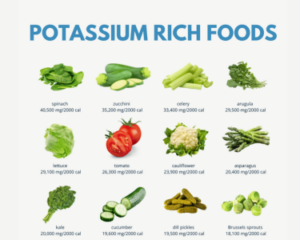
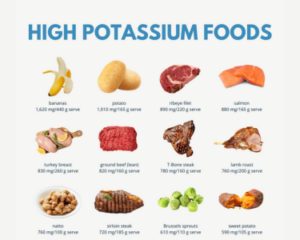
Potassium is essential for muscle function and heart health. It helps regulate fluid balance, nerve signals, and muscle contractions. During exercise, potassium is lost through sweat, and its deficiency can lead to muscle cramps, weakness, and fatigue. For adults, the recommended daily intake is 3,500 to 4,700 milligrams (mg). Incorporate foods like leafy greens (one handful = 300mg), bananas (400mg), oranges (240mg), avocado (700mg), sweet potatoes (500mg), beef/chicken/pork (1 ounce=100mg) into your diet to maintain optimal potassium levels.
2. Sodium
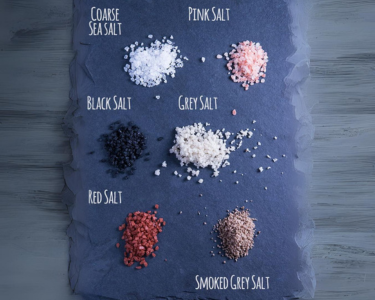
Sodium helps maintain fluid balance and blood pressure. It helps nerve transmission and muscle movements. While excessive sodium intake can be detrimental, especially for those with hypertension, it’s important to replenish sodium. The recommended daily intake for adults is less than 2,300 mg. Good sources of sodium include natural salts like Himalayan, Celtic, Black, and Sea Salts. These have not been processed nor have additives like table salt (best to avoid).
3. Magnesium
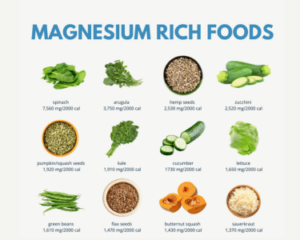
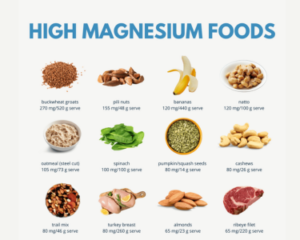
Magnesium plays a many roles included in muscles, and nerves, as well as protein usage. Depending on the form, it can help with muscle contractions and relaxation as well as reduce cramps/spasms. The recommended daily intake is 350-400 mg. Include magnesium-rich foods like seeds (per ounce) almonds/cashews (80mg), flax/chia/pumpkin (over 100mg), brazil nuts (107) avocado (60mg), leafy greens (1 handful = 30mg), and beef/chicken/pork (1oz = 8mg) to support your fitness regime.
Balance Water intake with Electrolytes
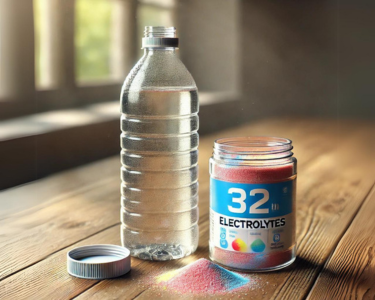
- Drink Daily: Aim to not be thirsty. On average without working out we use 70 to 100oz of water per day just living. Then add more for exercise. Listen to your body and if you think you are hungry you might just be thirsty, so drink first.
- Electrolyte-Rich Foods: Incorporate a balanced diet with fruits, vegetables, nuts, seeds, and meats to ensure adequate intake of potassium, sodium, and magnesium.
- Electrolyte Supplements: Ideally, aim for options with low sugar content and natural ingredients, like LMNT (https://drinklmnt.com/products/lmnt-recharge-electrolyte-drink).
- Monitor: Pay attention to the color of your urine—it should be light yellow. Dark yellow urine could be a sign of dehydration.
- Listen: Symptoms like excessive thirst, dizziness, muscle cramps, and fatigue can indicate an electrolyte imbalance or dehydration.
Remember –
Your body is an intricate machine, and maintaining its optimal function requires attention to these essential components. Make hydration and electrolyte balance a priority, and you’ll be well on your way to achieving your fitness goals and living a healthier life.




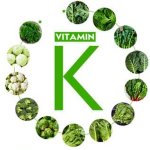
 Previous Post
Previous Post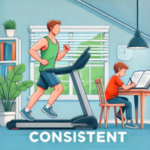 Next Post
Next Post